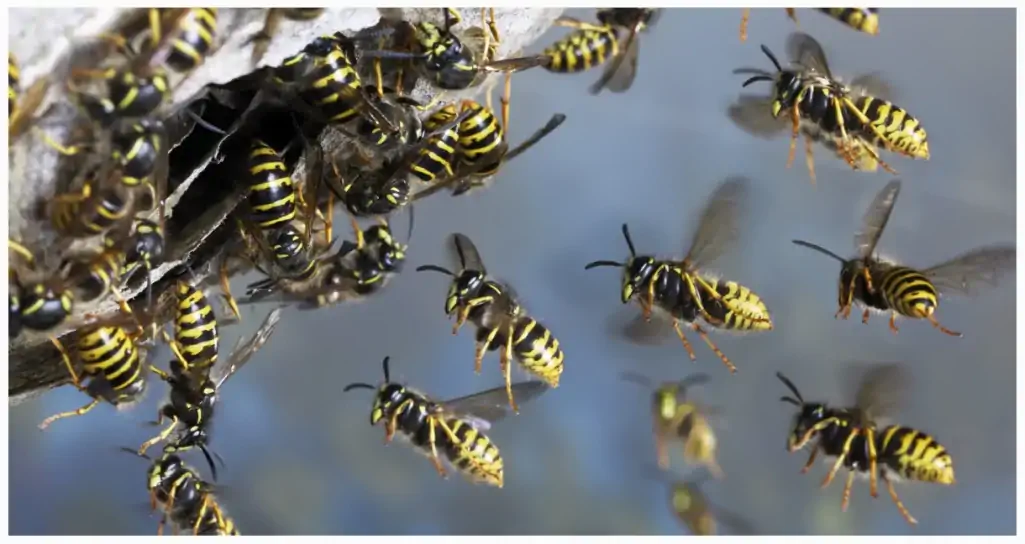The problem of wasp nest removal is larger than many people realise, and the UK wasp population although hard to put an exact figure on, outnumbers the human population, which means that during summer there are more than 60 million wasps at any one time throughout the country. With those numbers, it’s no small wonder that wasps nests are in abundance during the warmer months.
Luckily help is at hand, with wasp nest removal being offered throughout the UK by specialist (and very importantly – NPTA qualified) experts who can attend your property to ensure the safe removal of wasp nests without any major upheaval required. Wasp nest removal should never be attempted by unqualified persons.
While most of us prefer NOT to have a wasp nest in the loft, the garden shed, or anywhere else in our house or garden, the following gives some facts on WHY we have wasps in the first place.
The buzzing sound of a wasp can send shivers down the spines of many, but these seemingly bothersome insects play a significant role in the ecosystem. Wasps are known for their crucial role as pollinators, natural pest controllers, and indicators of environmental health. Furthermore, wasps are natural pest controllers, preying on insects like aphids and caterpillars, which can be harmful to crops and gardens. In addition to their ecological significance, wasps also contribute to cultural and educational aspects. They are subjects of scientific research, helping us understand insect behavior and ecology. Their presence in gardens and outdoor spaces provides opportunities for educational observation and engagement. Preferably someone else’s garden though!
Recognizing the importance of wasps in the ecosystem, various organizations and researchers are working towards understanding their decline and implementing conservation measures. Promoting the creation of wildflower meadows, preserving old trees, and reducing pesticide use are essential steps to mitigate the loss of wasp habitats, and will help to keep them out of places where we are.

